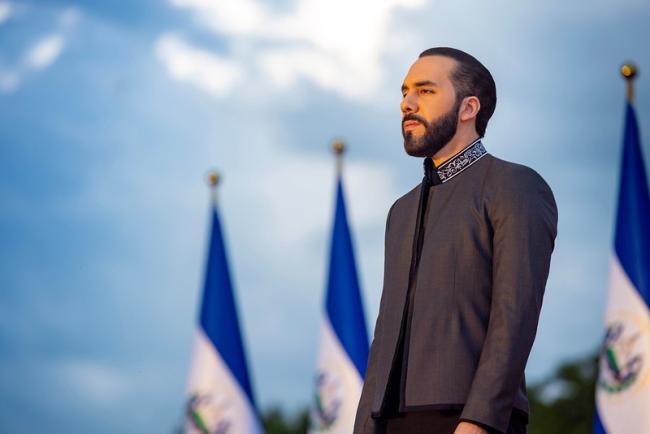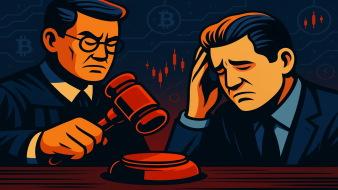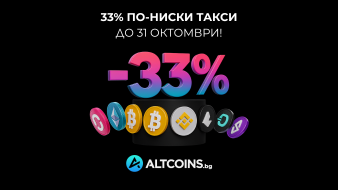Nayib Bukele – The Coolest Dictator in the World
Nayib Armando Bukele Ortez was born on July 24, 1981, in San Salvador, into a family with mixed religious and cultural roots. His father, Armando Bukele Kattán, was a successful businessman and an influential public figure.
Young Nayib began studying law at the Central American University but soon dropped out to join the family business — companies in the marketing and communications sector. It was this experience in the PR industry that gave him the skills for effective communication, which he would later use in politics.
First Steps in Politics
In 2012, Bukele won the elections for mayor of the small town of Nuevo Cuscatlán. There he demonstrated an ability to govern with more transparent budgets and a focus on social projects.
His success propelled him to a larger stage, and in 2015 he became mayor of the capital, San Salvador. During his term, he attracted attention with his unconventional style — a constant presence on social media, direct communication with citizens, and a strong personal brand.
The Presidential Victory
In 2017, Bukele left the old left-wing party FMLN and founded his own movement — Nuevas Ideas. Two years later, he won the presidential elections in the first round, with more than 53% of the vote.
As president, he introduced a “strong hand” policy against gangs, which led to a historic drop in murders — from over 100 per 100,000 people to under 2 per 100,000 by 2024. For many, he became a symbol of stability, but critics warned of restrictions on democratic freedoms.
Bitcoin as Legal Tender
In June 2021, Bukele shocked the world: El Salvador became the first country in the world to adopt Bitcoin as an official currency, alongside the US dollar.
The law came into effect on September 7, 2021, and the government took major steps:
-
created the Chivo digital wallet, which included a $30 BTC bonus for every citizen;
-
launched a $150 million fund to convert Bitcoin into dollars;
-
built a network of Bitcoin ATMs;
-
purchased the first 400 BTC as a state reserve.
The news shook the crypto community — Bukele instantly became a hero for Bitcoin enthusiasts worldwide.
International Reaction
The International Monetary Fund (IMF) and the World Bank responded with concern. The reason: Bitcoin’s high volatility and the risk it posed to public finances. Credit rating agencies like Moody’s and Fitch downgraded El Salvador’s credit rating.
Nevertheless, Bukele did not back down. He used Twitter (now X) to announce every new government Bitcoin purchase and defend his vision of financial independence.
Bitcoin City – Crypto Utopia or Marketing Trick?
In November 2021, Bukele unveiled an ambitious project — Bitcoin City. The city, to be built at the base of the Conchagua volcano, would use geothermal energy to mine Bitcoin.
The concept envisioned:
- a city shaped like a coin, symbolizing BTC;
- a tax haven — no taxes on income, capital gains, or property (only VAT);
- financing through “volcano bonds” — a new form of government debt backed by Bitcoin.
Although the project faced serious criticism and delays, it positioned El Salvador as the “crypto capital of the world.”
Impact on Tourism and Investments
After adopting Bitcoin, El Salvador reported a boom in international tourism. Thousands of crypto enthusiasts visited the country to witness the “Bitcoin nation.” Numerous conferences and crypto events began to be held in San Salvador and coastal resorts.
This turned the country into a magnet for digital nomads and investors seeking new opportunities.
The Reality in 2025
Despite the huge interest, the real use of Bitcoin in daily payments remained limited. According to surveys, less than 12% of the population actively used BTC.
Under IMF pressure, in 2024–2025 the government made a compromise: merchants were no longer required to accept Bitcoin, only if they wished. Thus, BTC remained an option, but not an obligation.
What Does This Mean for the Crypto World?
El Salvador demonstrated that integrating cryptocurrency into a national economy is possible — but difficult. The lessons are valuable:
- Bitcoin can attract tourism and investment.
- Volatility remains a serious risk.
- Global financial institutions exert strong pressure.
Nayib Bukele remains one of the most controversial figures in modern politics. For some, he is a visionary who turned a small country into a symbol of financial revolution. For others — a populist, willing to risk the nation’s future for an experiment.
One thing, however, is certain: El Salvador will forever be remembered as the first Bitcoin nation in the world. Bukele will also be remembered as the politician who defeated crime in his country almost overnight, turning El Salvador from the most dangerous nation in the world into a paradise — even a Bitcoin Paradise.













